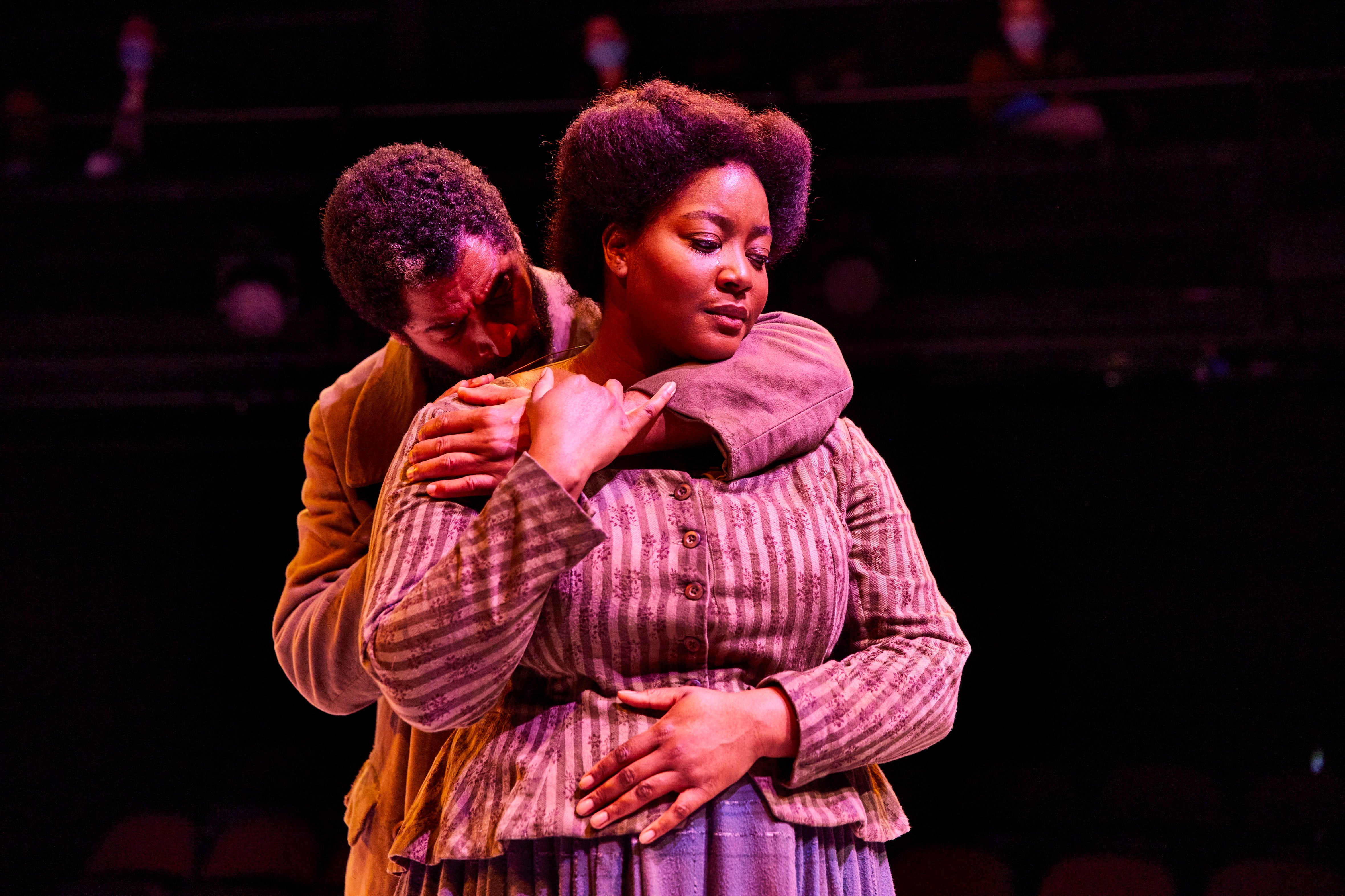Rockets and Blue Lights review, Dorfman Theatre: An ambitious, humane examination of the unresolved history of the slave trade
There is no naive belief here that the past can be dredged up like a ‘find’ from the bottom of the ocean. Instead, Winsome Pinnock’s play maintains that the chief value of art lies in its capacity to bear witness

Flying back home from a creative writing residency in Seattle some years ago, the distinguished London-born playwright Winsome Pinnock made a detour and stopped off in Boston. Her objective was to see Slave Ship (1840), the oil painting by JMW Turner that hangs in the Museum of Fine Arts there.
It must have felt like a date with destiny. The picture had long haunted Pinnock’s imaginative life. It depicts what – at first blush – looks like one of Turner’s trademark monumental maritime sunsets (like his much-reproduced The Fighting Temeraire). But peering at the actual pigment for a sustained period of time brought home to Pinnock the horrifying nature of its subject matter. The eye starts to notice the hands of drowning figures desperately reaching out of the waves. For art historians and connoisseurs, it is an open secret that the painting may be depicting the 1781 Zong Massacre, the real-life atrocity in which the crew of that ship threw the human captives overboard to a turbulent watery fate when rations ran low.
The painting forms the matrix of Rockets and Blue Lights, Pinnock’s inspirationally ambitious and all-encompassingly humane examination of the unresolved history of the transatlantic slave trade. It is brought to life in the Dorfman in a production of huge resourcefulness and chutzpah by Miranda Cromwell.
The play flips back and forth between a workshop discussion on the set of a notional present-day film about the life of JMW Turner and the honest attempts by Rockets and Blue Lights to grapple with difficult issues about representation. There is no naive belief here that the past can be dredged up in an unmediated way like a “find” from the bottom of the ocean. Instead, Pinnock’s play maintains that the chief value of art lies in its capacity to bear witness. Rockets and Blue Lights is a dynamic practical demonstration of this – we feel that “bearing witness” involves the need to do a trade-off between salvaged documentary evidence and empathetic reconstruction.
At the start, there is an encounter between two black women who seem, surreally, to be in different time zones. With her flowing turquoise gown, cinched in at the bust, Kiza Deen’s beautifully acted Lou looks as if she could be located anywhere from the Second Empire to a sci-fi series. She scarcely seems to share a planet with the present-day teacher in the T-shirt with the print of a Nina Simone photograph (a lovely performance by Rochelle Rose), who is evidently taking her pupils round a gallery.
Lou has in fact been cast as the lead in the putative biopic. Which is being watered down at the behest of the American producers, much to her voluble disgust. They want to shift the emphasis from the stricken slaves to Turner, and to a Turner they want to sanitise further from the historical personage who was haunted by the guilty secret of having himself bought shares in a sugar plantation when he was a young man.
The wonder of it is that the author, the director, and superbly shape-changing cast pull it off with such delicacy and finesse as well as vivid dialectical punch. The operative words that echo through it all are “slave” and “free”. Paul Bradley is wonderful as a shifty Turner who can morph into Prospero, in scenes where we see Shakespeare’s control-freak magician in vignettes from The Tempest that point up its colonialist aspects.

Cathy Tyson and Karl Collins make a massive impact, the latter playing both the author of the compromised movie and the ship’s on-board conscience. The latter figure makes a secret deal with the ship’s owners that gives him paradoxical ownership of the woman he is seeking to liberate.
All kudos to the National Theatre for picking up a play that was only three days into its run at Manchester’s Royal Exchange Theatre when the pandemic brought it to a close. And for staging it so enthrallingly. Here the National is truly living up to its name as a theatre for representing the whole nation. Bravo.
‘Rockets and Blue Light’ plays at the Dorfman at the National Theatre until 9 September



Join our commenting forum
Join thought-provoking conversations, follow other Independent readers and see their replies
0Comments